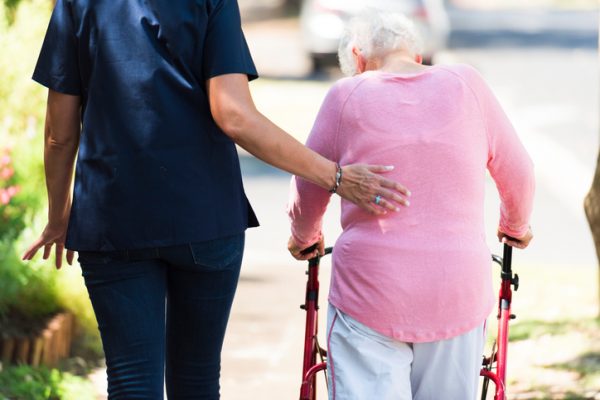
In the fragmented home-care space, San Francisco-based startup Honor is trying to bring together more caregivers under one company. The idea is to reach a scale where it can coordinate with health systems and insurers while meeting a common standard of care.
“Home care is hard. There is no one that has more than half-a-percent of the market on an owned and operated basis. It’s that fragmented,” co-founder and CEO Seth Sternberg said on a call. “By creating a singular network, it creates some interesting opportunities around how we can interface with medical providers.”
To meet that goal, Honor raised $140 million in series D funding, led by investment firms Baillie Gifford and T. Rowe Price Associates. To date, the company has raised more than $255 million in funding.
“We believe investing is about identifying companies that can deliver transformational growth on the back of long-term structural changes,” Baillie Gifford’s Anika Penn said in a news release. “Honor has demonstrated their ability to leverage technology to elevate and expand services to older adults who want to remain in their homes and to improve conditions for home care aides.”
Last year, CNBC reported that SoftBank’s Vision Fund 2 was in talks to invest in Honor. But that deal did not materialize, along with several other planned SoftBank investments, according to Axios.
Currently, Honor works with more than 40 home care agencies across California, Texas, New Mexico, Arizona, Ohio, and Michigan.

Improving the Healthcare Financial Experience to Help Care Flow
Zelis CEO Amanda Eisel shares her perspective on how the company is solving the problems of a fragmented health financial system to benefit all.
The startup contracts with these companies, managing their back-office functions such as administrative work, compliance and recruiting in exchange for a portion of revenue. Sternberg touted a platform the company uses to help manage its network, such as calculating caregivers’ preferred schedules.
“We use a lot of machine learning to figure out why people behave the way they behave,” Sternberg said.
Since the start of the pandemic, Honor has seen an uptick in demand. Sternberg said the average hours per week per home increased from 35 to 45.
Honor also has built symptom checkers and sourced hundreds of thousands of masks to reduce exposure to the virus.
“Covid’s going to be here for a while. For a long time, things like infection control protocols and symptom checkers, they’re going to be important,” he said.
In the longer term, Sternberg sees opportunities to look at more details to improve care, such as making sure there’s fresh food in the fridge, to something as simple as making sure the lightbulbs in a patient’s home are not burned out.
“There’s so much we can do fundamentally caring for someone, and building a national network is the first step,” he said.
Photo credit: jacoblund, Getty Images










